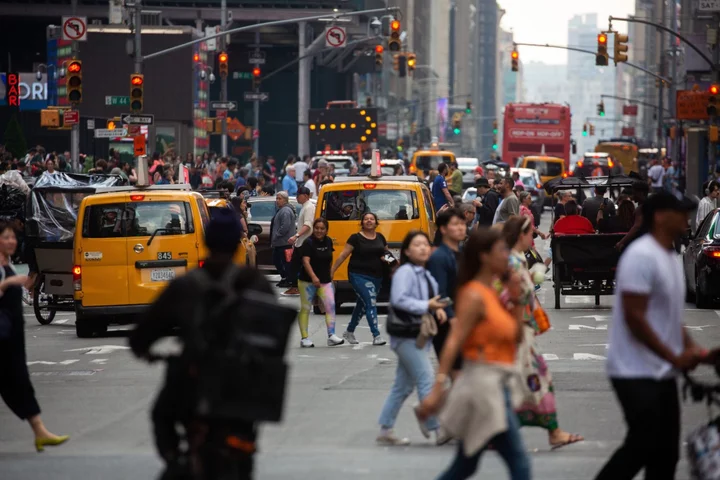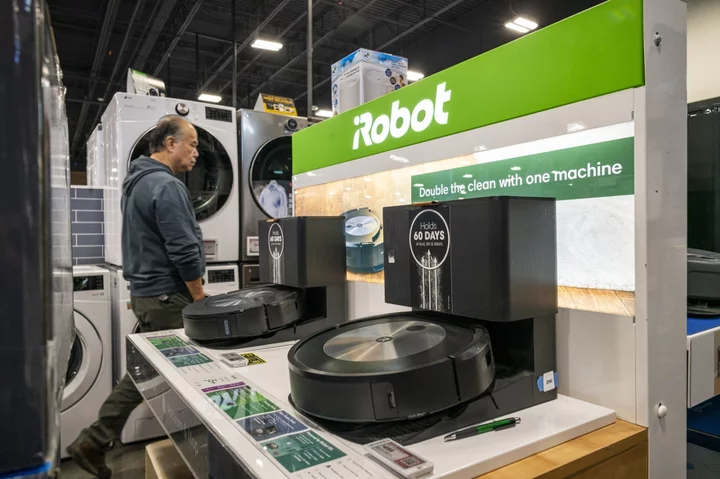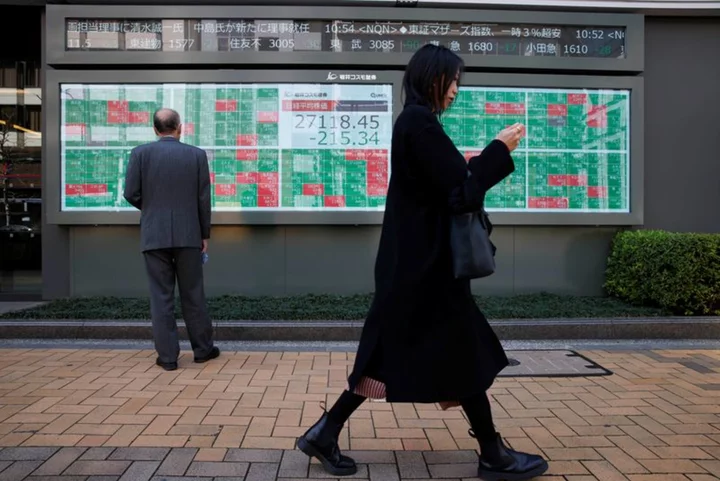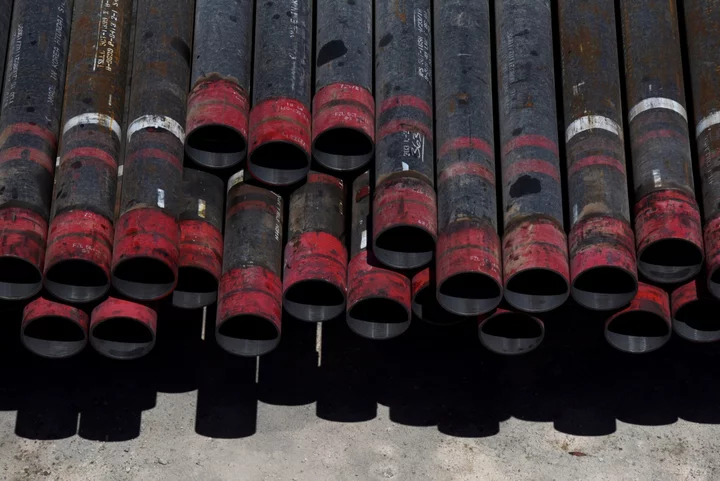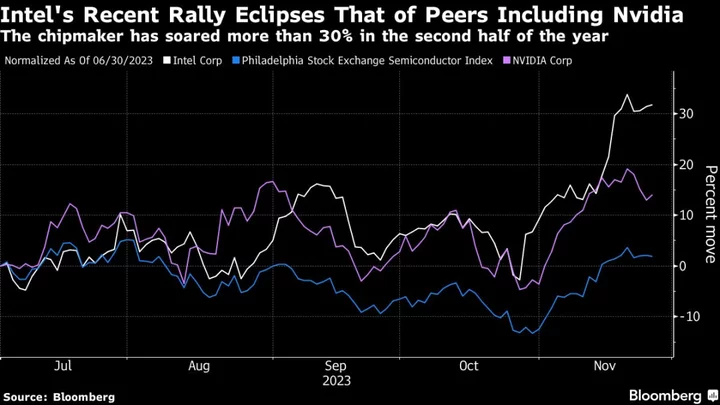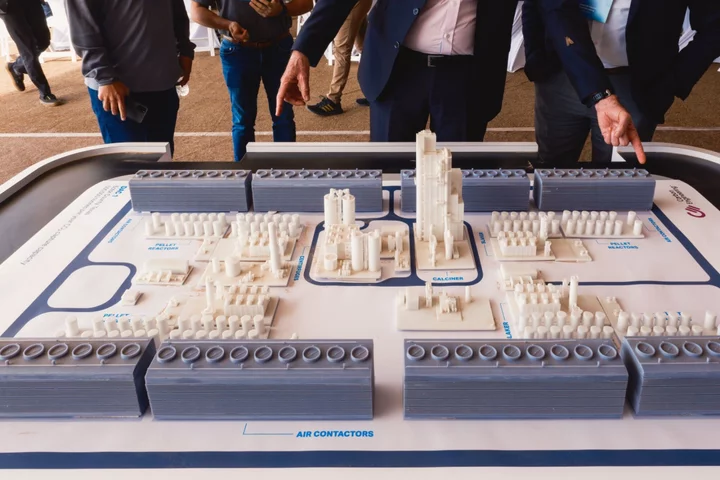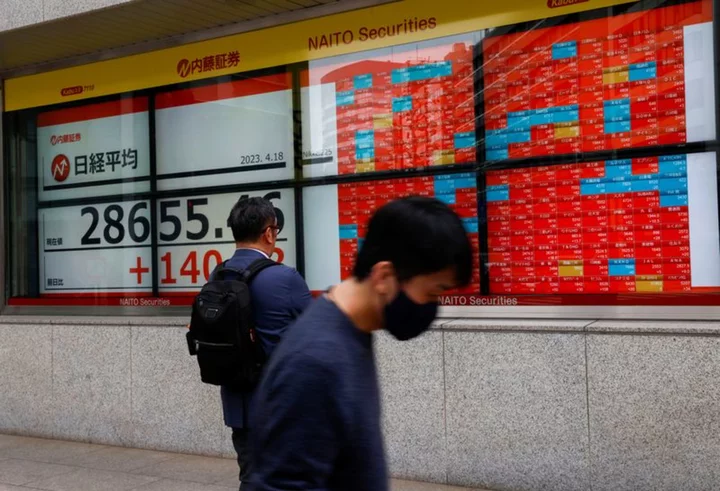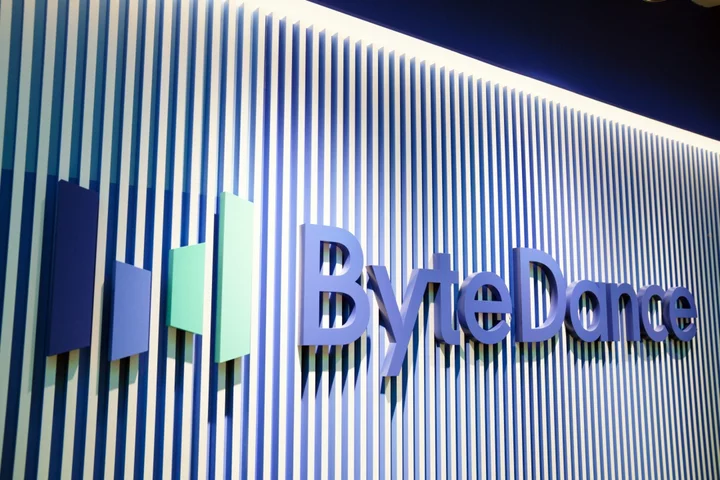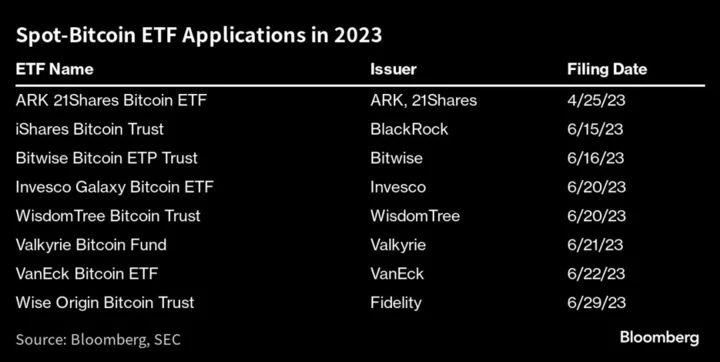New York’s plan to charge drivers entering midtown Manhattan is a “brazen money grab,” New Jersey’s senior US senator said after the Garden State sued to block the congestion pricing proposal.
The litigation threatens to delay a second-quarter start to the plan, under which drivers using E-ZPass who enter the city south of 60th Street could pay as much as $23. The tolling program got final approval last month from the Federal Highway Administration, or FHWA, which determined it would have no significant environmental impact.
In a lawsuit filed Friday morning in federal court in Newark, the state sued the FHWA and the US Department of Transportation, claiming the US approval was ill-considered and missed numerous risks to the state’s residents. It alleges that FHWA ignored the fact that the new tolls would change commuting patterns, redirecting traffic that would unfairly burden New Jersey crossings not included in the pricing plan.
“We’ll bear the burdens of congestion pricing while New York City gets the benefits, and that’s not fair,” Governor Phil Murphy said at a press conference following the suit, adding that the state’s leaders would fight “tooth and nail” to make sure New Jerseyans are treated fairly.
‘Highway Robbery’
But his emphatic message was low-key and upbeat compared to that of Senator Bob Menendez, who followed him at the podium.
The proposal is “highway robbery,” Menendez said. “It’s anti middle class, anti small business, anti common sense for communities that call this side of the Hudson home.”
QuickTake: What Congestion Pricing’s Arrival in NYC Will Mean
The National Environmental Policy Act, or NEPA, requires US agencies to consider the environmental impact of any major federal project — which includes a city plan that uses federal funds — and conduct an assessment that includes public comment.
But “nothing in this bedrock federal environmental law allows the FHWA to turn a blind eye to the significant environmental impacts that congestion pricing in the Manhattan Central Business District will have on New Jersey, favoring New York at the expense of its neighbors,” the state said in its complaint.
Midtown Traffic
Nancy Singer, a spokesperson for the US Department of Transportation, said in an email that the agency doesn’t comment on pending litigation. Tim Minton, a spokesperson for the Metropolitan Transportation Authority, which is implementing the congestion pricing plan, didn’t have an immediate comment on the suit. New York Governor Kathy Hochul didn’t respond to a request for comment.
About 1.5 million people work in Manhattan’s central business district, and 143,000 of them drive into the area, according to the MTA. That doesn’t include those driving in for reasons other than work.
The new tolls are expected to help raise $15 billion for public transportation projects. New York officials say the charges could also reduce daily traffic in the district by 20%.
Asthma and the Air
New Jersey is seeking to block the initial environmental assessment, a shorter process, and force DOT and FHWA to require the MTA to conduct a “full and proper” environmental impact statement, which is more thorough.
It claims that the environmental assessment failed to consider the impact on air quality in New Jersey, including the potential increase in PM2.5 levels in Fort Lee, near the George Washington Bridge, that could exceed the latest US Environmental Protection Agency standards. Such PM readings refer to fine particulate matter, which can pose health risks.
The final environmental assessment “buried the reality that while Manhattan’s air quality may improve, New Jersey’s air quality will deteriorate as traffic and pollutants shift,” the state alleges. New Jersey said the impact on air quality in Bergen County will result in a slew of health issues for residents, including premature mortality, asthma attacks, bronchitis and emergency room visits.
Open to Idea
Murphy has said he is open to the idea of congestion pricing but that the goal of the current project is simply to raise revenue for New York’s MTA and its $51.5 billion multi-year capital plan, which will extend the Second Avenue subway to Harlem, modernize signals and finance electric buses.
Those infrastructure projects could be delayed if Murphy’s legal challenge forces the MTA to postpone the plan. The MTA expects the tolls to bring in $1 billion annually, with a plan to raise $15 billion by issuing bonds.
Opponents of such projects often use such impact assessments to challenge proposals in federal court. Groups opposing a 1970s-era plan for Westway — a highway with commercial space and parkland that was proposed for 200 acres of landfill on the Hudson River — defeated the project when an appeals court found that a review had failed to take into account its potential effect on the striped bass population.
In April 2008 Jon Corzine, then New Jersey’s governor, threatened a lawsuit to block then New York Mayor Michael Bloomberg’s proposal to charge motorists entering the busiest parts of Manhattan, saying it would unfairly tax commuters in his state. The New York State Assembly scuttled the plan later that month, deciding not to vote on the proposal. The former mayor is the founder and majority owner of Bloomberg News parent Bloomberg LP.
--With assistance from Skylar Woodhouse.

